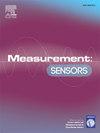Selected channel based multiclass emotion classification from wearable human brain EEG signal
Q4 Engineering
引用次数: 0
Abstract
Emotion recognition is a crucial issue in human-computer interaction, and EEG (electroencephalography) plays a significant role in deciphering human emotions based on physiological data. However, the complex and non-stationary nature of EEG signals, coupled with redundant information from multi-channel recordings, poses challenges in accurate emotion classification. To address this, we propose a hybrid 1DCNN-Bi-LSTM model that integrates spatial feature extraction (1DCNN) with temporal dependency learning (Bi-LSTM), enhancing the robustness of emotion classification. Furthermore, we present a channel selection mechanism to find the most pertinent EEG channels for emotion recognition, hence lowering computing complexity without compromising accuracy. With the chosen-channel model (8 channels) attaining 85.16 % accuracy, a notable improvement over standard full-channel approaches, experimental results on the DEAP dataset show that the suggested methodology provides significant performance gains. This work fits wearable devices and real-time affective computing systems since it offers a scalable and effective method for EEG-based emotion recognition.

选择基于通道的可穿戴人脑脑电信号多类情绪分类
情绪识别是人机交互中的一个关键问题,而脑电图(EEG)在基于生理数据解读人类情绪方面发挥着重要作用。然而,脑电信号的复杂性和非平稳性,加上多通道记录的冗余信息,给准确的情绪分类带来了挑战。为了解决这个问题,我们提出了一种混合的1DCNN-Bi-LSTM模型,该模型将空间特征提取(1DCNN)与时间依赖学习(Bi-LSTM)相结合,增强了情感分类的鲁棒性。此外,我们提出了一种通道选择机制来寻找最相关的EEG通道用于情绪识别,从而在不影响准确性的情况下降低计算复杂度。选择通道模型(8通道)达到85.16%的准确率,比标准的全通道方法有显著提高,在DEAP数据集上的实验结果表明,所建议的方法提供了显着的性能提升。这项工作适用于可穿戴设备和实时情感计算系统,因为它为基于脑电图的情感识别提供了一种可扩展且有效的方法。
本文章由计算机程序翻译,如有差异,请以英文原文为准。
求助全文
约1分钟内获得全文
求助全文
来源期刊

Measurement Sensors
Engineering-Industrial and Manufacturing Engineering
CiteScore
3.10
自引率
0.00%
发文量
184
审稿时长
56 days
 求助内容:
求助内容: 应助结果提醒方式:
应助结果提醒方式:


